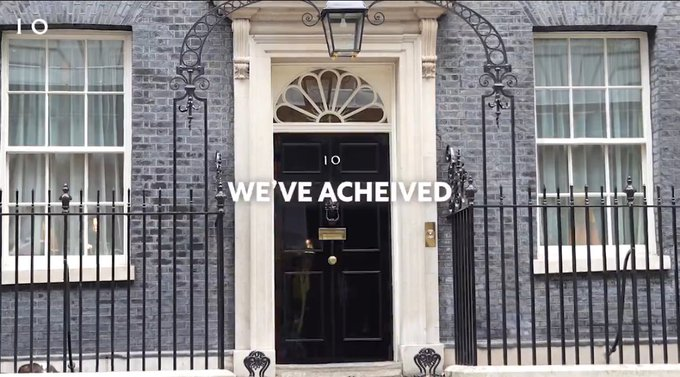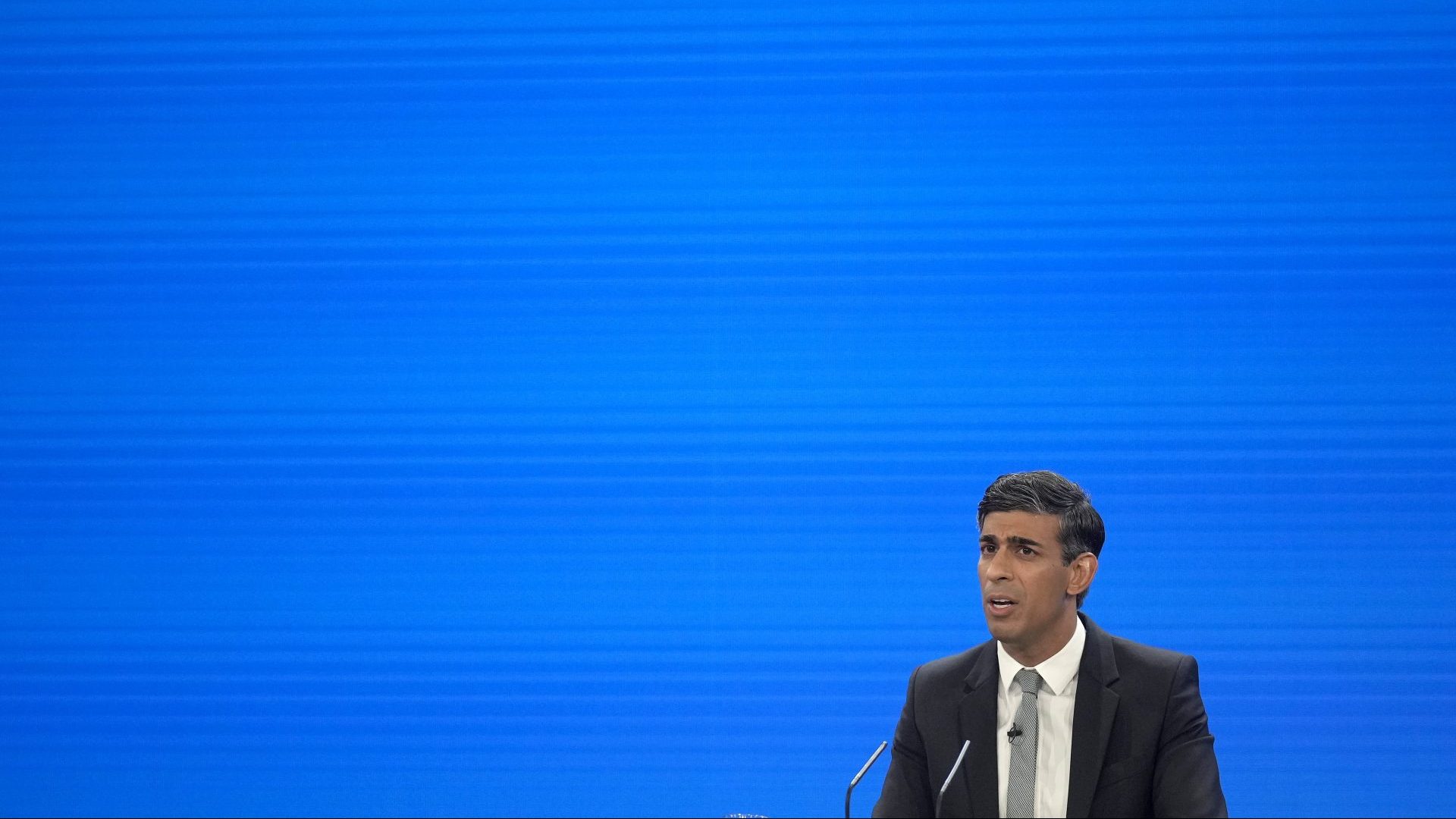Rishi Sunak has issued a video listing all his achievements in his first year in power. But he seems to have forgotten these…
1 Spelling ‘achieved’ incorrectly in the aforementioned video
The first version of the video uploaded to Twitter/X by Number 10 said ‘We’ve acheived’, before being swiftly removed and replaced by Downing Street flunkies. Altogether now, ‘I before E except after C…’ (or in the case of Sunak’s likely successor, Keir Starmer, K).

2 Using private planes and helicopters to get around the UK more than any other recent prime minister
Figures revealed via freedom of information requests to the BBC in August showed Sunak boarded 23 domestic flights on RAF jets and helicopters in 187 days. The prime minister had taken one flight every eight days on average, compared to Theresa May’s one every 13 days, Boris Johnson’s one every 20 and Liz Truss, who got less opportunity than most, every 12.
Asked by a radio presenter why he so routinely flew, Sunak tetchily snapped: “If you or others think that the answer to climate change is getting people to ban everything that they’re doing, to stop people flying, to stop people going on holiday, I mean, I think that’s absolutely the wrong approach.” The Daily Star routinely refers to the PM as Biggles.
3 Losing four safe seats in by-elections
Since becoming Conservative leader and prime minister, Sunak has lost Selby and Ainsty, Mid Bedfordshire and Tamworth to Labour and Somerset and Frome to the Liberal Democrats, all seats which in normal circumstances would be considered safe Tory seats. Two were sparked by allegations of sexual misconduct against the departing MP, while two followed the incumbent resigning in a fit of pique after being denied a peerage in Boris Johnson’s resignation honours list.
Reacting to the most recent losses, in Mid Bedfordshire and Tamworth, Sunak said he was “delivering on the priorities of the British people”. He is now likely to face a further difficult by-election in Peter Bone’s Wellingborough seat.
4 Asking a homeless man if he worked in business
On December 23 last year Sunak visited a homeless shelter in London and handed out breakfast to people. After preparing a full English to a man called Dean, Sunak asked “do you work in business?” to which Dean replied he didn’t. Because he was homeless.
5 Being fined for not wearing a seatbelt
In January this year the prime minister recorded a video from a car to promote levelling-up funding as he visited Lancashire. However, the car was moving, Sunak was not wearing a seatbelt, and Lancashire Police announced it had issued a 42-year-old man from London with a conditional offer of a fixed £100 penalty – 0.00001% of Sunak’s net worth as estimated by the Sunday Times rich list.
6 Breaching the ministerial code over his wife’s link to a childcare firm
In April Sunak, who, in his first speech on the steps of Downing Street promised “integrity, professionalism and accountability at every level” in an apparent dig at Boris Johnson’s scandal-stained administration, declared his wife’s shareholding in a childcare company which could benefit from a new government policy just four years after she invested in the company.
In a footnote to his entry on the register of minister’s interests, Sunak declared that among “a number of direct shareholdings” owned by his wife, Akshata Murty, was a “minority shareholding” in Koru Kids, one of six companies involved in a pilot scheme to incentivise people to become childminders.
Commissioner for Standards Daniel Greenberg concluded that the prime minister had breached the ministerial code but it was inadvertent and was a result of the prime minister’s “confusion” around the rules on declaration.
7 Having Gavin Williamson in his Cabinet for 14 days
Former education secretary and fireplace salesman Gavin Williamson was appointed as minister without portfolio, attending cabinet, as Sunak formed his government. But he lasted just two weeks after WhatsApp messages emerged in which, among other things, he had appeared to threaten former chief whip Wendy Morton over his anger at not getting an invite to Queen Elizabeth II’s funeral.
Sunak could have been warned about Williamson’s likely conduct, having previously witnessed him sacked as defence secretary after leaking National Security Council information. Still, at least he didn’t make the same mistake twice…
8 Appointing Suella Braverman as home secretary six days after being sacked for leaking an official document from her personal email address
Oh.
9 Having his old phone number leaked online after telling the Covid inquiry it was no longer operational
Earlier this month Sunak failed to hand over his WhatsApp messages from his time as chancellor to the Covid inquiry despite a high court ruling that ministers should disclose their communications for scrutiny. The prime minister told the inquiry he was unable to hand over some messages because he had changed phone several times.
At the weekend, however, it emerged his old phone number and a voicemail recording appeared to have been leaked online by pranksters. The Sun said it had verified the number was the same that Sunak had used for many years, including while chancellor and during last year’s leadership election. It prompted questions about why he had said old messages were no longer recoverable for the Covid inquiry. At least, unlike Rebekah Vardy’s agent, he didn’t drop it in the sea.
10 Missing the Boris Johnson Partygate sanctions vote
In June the House of Commons voted on whether to impose sanctions on Boris Johnson over his Partygate denials, the culmination of a 14-month inquiry by a cross-party group of MPs. The report found Johnson deliberately misled parliament over Partygate and was part of a campaign to abuse and intimidate MPs investigating him.
MPs were given five-and-a-half hours to debate the report with the former prime minister censured in his absence, with 354 MPs voting to approve and just seven voting against. Sunak, however, failed to attend Parliament at all on the day, his spokesperson citing “commitments that he can’t move”.










